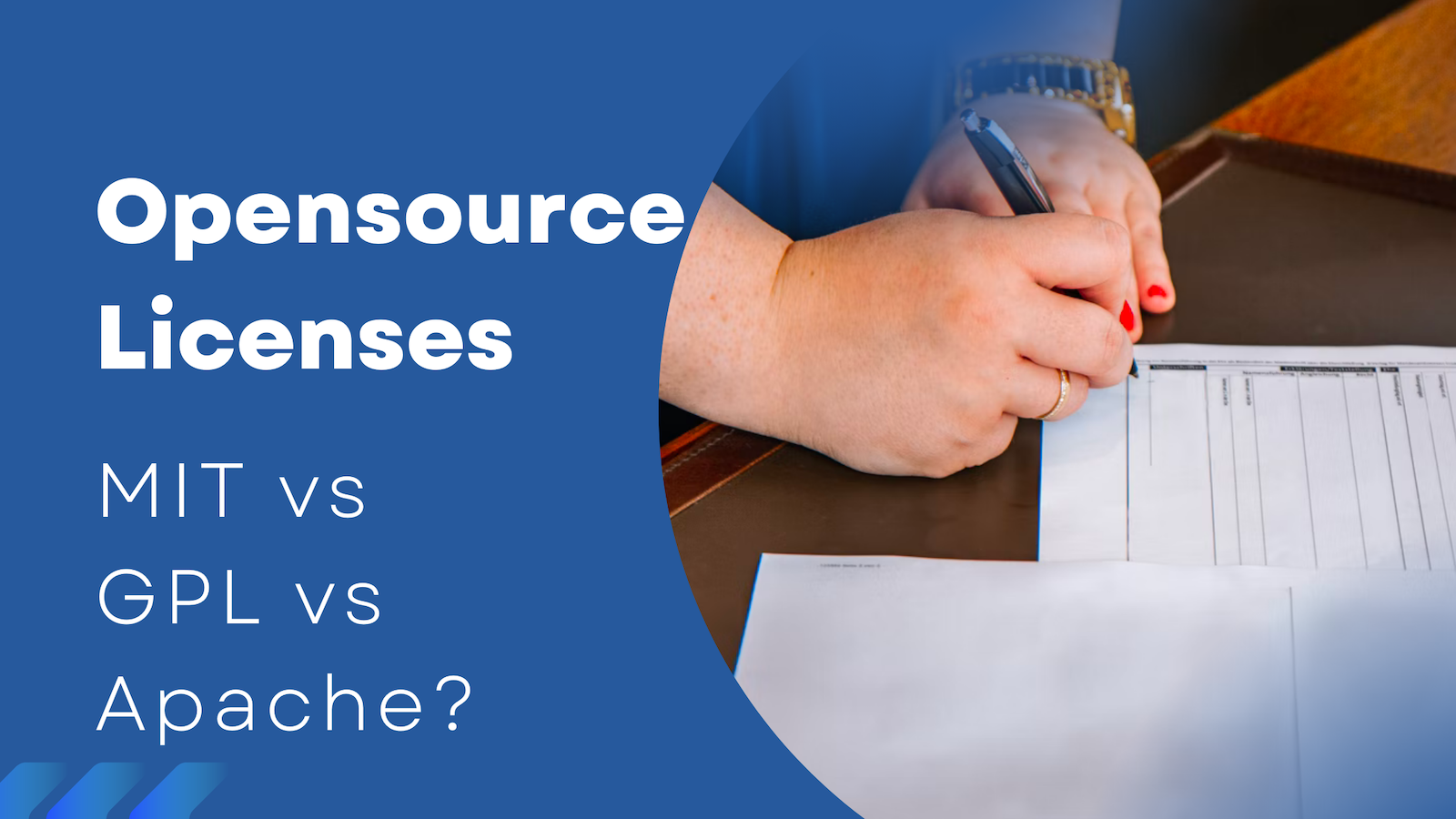
Opensource Licenses Explained
Opensource licenses have always been an achilles heel for enterprises. In this article, we try to explain different licenses and how they would be useful for you.
Open source licenses are very much important for any organization. This is because if they are using open source software without understanding the obligations, it may lead to troubles. Proprietary software are owned by other companies. While you generally cannot access proprietary softare without paying for it, it's best not to change anything in proprietary software since it might be covered under licensing agreements.
Proprietary vs open source
Open source software generally have their source code available for the public to take a look. But that said, all open source software are not equal. There are different open source licenses that are being used and you should understand the license under which the open source software is distributed. The restrictiveness of the open source licenses are very important to understand. We are talking about some of the licenses in the order of decreasing restrictiveness.
The GNU General Public License (GPL)
GPL preserves license notifications and copyright terms and is suitable for commercial, patent, and private use. Any software that uses GPL code must distribute all its source code under the same license. So if you use GPL code in your software (e.g., by using a GPL library), and distribute your application, all your source code must be made available under the same GPL license. This restriction makes the GPL a strong copyleft license.
The Affero GPL (AGPL)
AGPL only adds only one clause, but an important one for some software. Because the GPL license is only triggered when software is distributed, there is a loophole for software that is made available over the network only, i.e., not explicitly “distributed”. The AGPL license closes this loophole by including a remote network interaction clause that triggers the GPL license for any software used over a network.
The Lesser General Public License (LGPL)
LGPL provides the same level of terms as the AGPL and GPL copyleft open source licenses, including preserving copyright and license notifications. The prime variation is that smaller projects or objects accessed through larger licensed works do not require distribution of the larger project. Moreover, the modified source does not have to be distributed under the same terms that apply to the larger code project.
The Eclipse Public License (EPL)
EPL is commonly used for business software.With EPL, software developed using EPL, non-EPL, and even proprietary code can be combined and sub-licensed – provided any non-EPL elements reside independently as separate modules or objects. Modifications can be made under the EPL license, but they must be released under the same terms.
The Mozilla Public License (MPL)
MPL is the least restrictive copyleft open source software license. They make it easy to modify and use their code in closed-source and/or proprietary software, as long as any code licensed under the MPL is kept in separate files and these files are distributed with the software. The MPL also includes patent grants and enforces that copyright notices be retained.
Apache License
The Apache License requires license notifications and copyrights on the distributed code and/or as a notice in the software. However, derivative works, larger projects, or modifications are allowed to carry different licensing terms when distributed and are not required to provide source code. Apache licenses contain a patent grant.
MIT License
The MIT License, which bears the name of the famous university where it originated, is perhaps the most used open source license in the world, perhaps because it is very short and clear and easy to understand. Iit allows anyone to do whatever they wish with the original code, as long as the original copyright and license notice is included either in the distributed source code or software. It removes any liability from authors and does not explicitly contain a patent grant.
BSD License
The Berkeley Source Distribution (BSD) License is another permissive open source license that preserves license notices and copyrights but allows larger or licensed works to be distributed without source code and under different license terms. The 2- clause BSD License is very similar to the MIT open source license, while the 3-clause and 4-clause BSD licenses add more requirements or restrictions related to reuse and other terms.
Unlicensed
Unlicense: As its name indicates, this is the least restrictive of open source licenses because it amounts to making the open source open to the public domain. No conditions apply, meaning these unlicensed works can be distributed without source code and under different terms.

